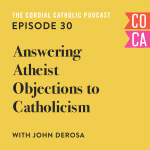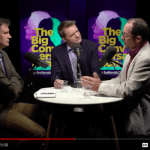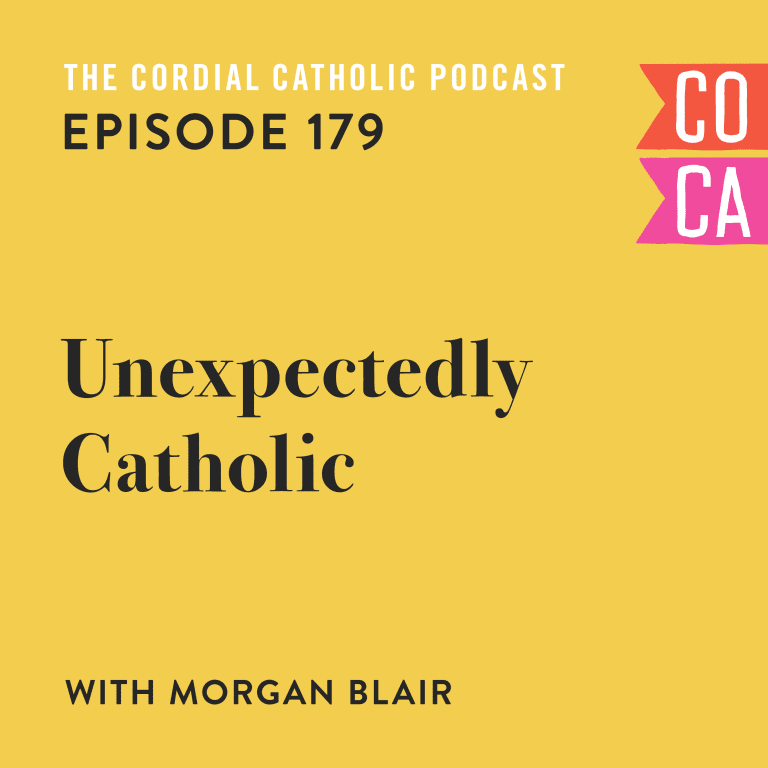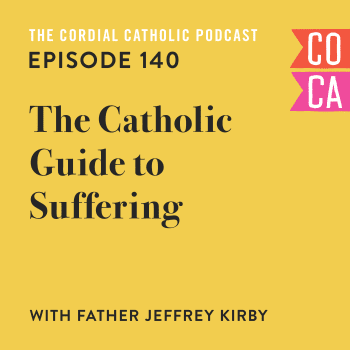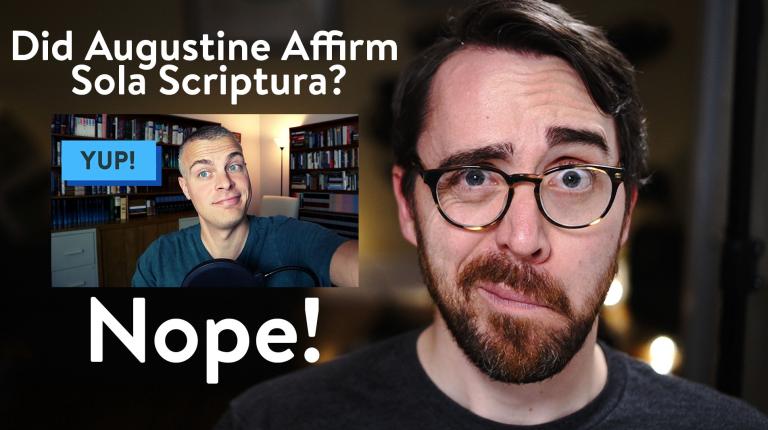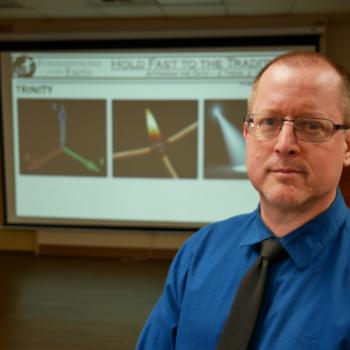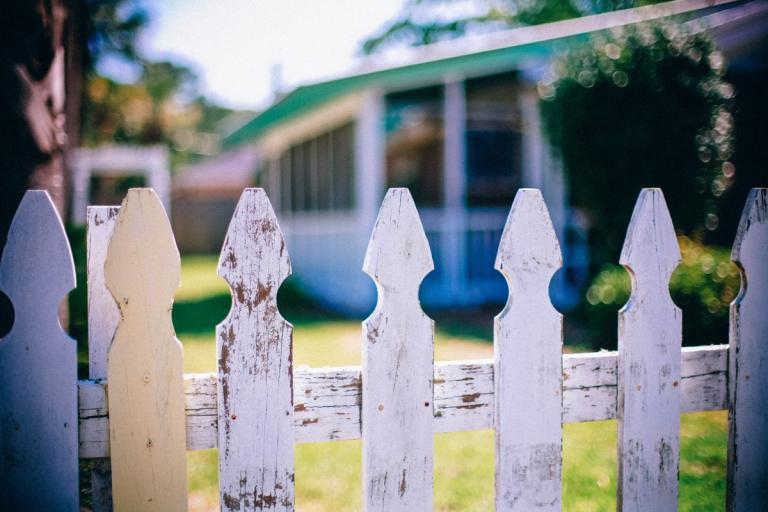
When Jesus famous told us that we must love our neighbours as ourselves the anxious crowd responded, “Who then is our neighbour?”
The question is no less prescient today.
While the Jewish/Gentile and Roman/Non-Roman fault lines of the ancient world are no longer what divides our society, one could easily argue that we’re just as divided as ever. Along lines of politics and race; of culture and ethnicity; of those in our circle of trust and those that we are, for all kinds of reasons, afraid to let in.
But who is our neighbour? The answer is, everyone.
And if the Good News of the Gospel of Jesus Christ is really good news then we need to be prepared to engage with our neighbours, in dialogue and discussion—in charity and clarity—to give, as St. Peter urges, a reason for the hope that we have.
With that in mind, I was blessed recently to sit down and chat with John DeRosa. John is the host of the incredibly popular Classical Theism Podcast.
Every week John speaks with philosophers, theologians, and apologists to dig deeply into aspects of Catholic Christian faith in order to better understand, explain, and defend it. It’s a brilliant show and John, as a self described “studious amateur,” is learning alongside some of the absolute best.
So I was naturally very grateful that John would sit down and share some of what he’s learned with me; specifically, how to meet some of the most common atheist objections to our faith. The kind of “slogans” you might hear in the staff room at work or slung around at parties or in coffee shops. Slogans picked up from places on the Internet but, as John demonstrates, are prone to a little bit of gentle, graceful pushback with the right kind of response.
The “Ask Questions First” Approach
Like all good theologians, apologists, and even artists, John says his approach to apologetics is borrowed from others but I can understand why—it’s a great one—and I want to begin by underscoring how he talks about these topics from the outset.
John asks questions.
Key, he says, in his approach to apologetics is to understand where the person you’re speaking with is coming from: What are their specific objections? And how are they approaching the topic?
To ask questions first, an approach which Catholic Answers apologist Trent Horn discussed with me as well, you not only save time but you better understand your dialogue partners point-of-view and are better able to empathize.
So, you begin there, to tackle objections, first, with questions.
Answering The Scientific Objection
The first question John tackles is the scientific objection to belief in God.
Simply put, science hasn’t found God so how can he exist?
This is, sad to say, an all-too-common objection to Christianity, Catholicism, and theism in general. I’ve written about it before as well. And while science is responsible for some of the greatest breakthroughs of the hundred years or more it isn’t, as John highlights, the be-all-and-end-all.
Because, for starters, science can’t prove itself through the scientific method.
The practice of science cannot be shown to be scientifically true in a test tube experiment, in controlled conditions in a lab, or through any kind of field research study.
To do good science, as it were, we have to make all kinds of assumptions outside of science like that the scientist isn’t fudging their results (morality), that their observations are accurate (sense stimuli), and that their conclusions are sound (logic). None of these assumptions exist within the framework of science and none of them can be proved through scientific experimentation.
What can you ask your atheist neighbour about science?
In charity and with grace, gently ask your atheist neighbour how science can even prove itself. If science can prove everything then it also needs to prove itself, but of course it can’t.
It’s worth considering, then, that maybe science isn’t the right tool to find God. Citing and example from Dr. Edward Feser, John suggests it’s like using a metal detector to find plastic cups at the beach. It simply isn’t the right tool for the job, no matter how hard you try.
Answering the Objection from Suffering
Probably the greatest challenge any Catholic or Christian apologist has to meet is the problem of suffering.
It’s a challenge that features, in every survey or poll, as one of the top reasons why otherwise believing Christians and Catholics leave the faith.
So it’s a hefty challenge to meet and, as John reminded me, any attempt to meet it needs to be surrounded in lots and lots of prayer. It is, after all, a highly emotional topic. Few, I would wager, approach the problem of evil or suffering from a purely philosophical perspective. More likely, and I think this is true, those who are suffering or have suffered greatly come at this topic from a highly personal perspective.
It isn’t, I don’t think, suffering in a void. It is, instead, the death of a child, the loss of a great love, the reality of terrible disasters and violence.
Sensitivity, tact, grace, and a lot of prayer is required to even approach this topic.
And then ask the question, “What is your problem with suffering?”
Revealing whether a person’s problem with evil and suffering is purely philosophical (how can a good God allow bad things?) versus highly emotional (why did God let my child die?) can radically change the type of conversation you will have.
In the first case, if someone objects to the fact that a good, all-knowing, and all-powerful God allows bad things to happen a simple, gentle push back might be to ask something along the lines of, “Well God had to allow humankind a choice to worship Him, right, because that choice necessarily comes with side effects, namely the ability to choose not to.”
A simple, gentle question like this, as John points out in our discussion, can be a easy way to demonstrate perhaps some flaws in the challenge to begin with.
God had to give us the opportunity to choose right from wrong and that ability to choose can create wrong.
Of course the second, more difficult perspective on the problem of God and suffering is the deeply personal one.
If, on the other hand, the person’s objection to suffering comes from the well of their own experience our response, in turn, should become a much more pastoral one. And, in this case, John wisely reminds us of the Book of Job—the best thing Job’s friends is to, first, simply sit alongside him.
Answering the Wishful Thinking Objection
Karl Marx famously called religion “the opiate of the masses.” Freud later called it “wishful thinking.” And when I posed this challenge to John, in our discussion, his response was, in a word, fantastic.
“But what if it’s true!” he said.
What if God exists and religion is true?
As John insightfully points out, the challenge that religion is simply a sedative to keep the human population under control, a drug, or merely our fanciful imagination only actually challenges God if God isn’t true. If, on the other hand, religion can be proved to be true, then it isn’t a opiate for the masses and it isn’t merely wishful thinking.
Here, we simply need to point the atheist in the direction of some good evidence for God’s existence.
Ask, as Catholic Answers apologist Trent Horn is fond of doing, “What’s the best evidence you know for God’s existence, and why don’t you believe it?”
In other words, in order to undermine or begin to gently push back against the idea of God as “wishful thinking” is to simply show good reasons why he isn’t. After all, it isn’t wishful thinking if we have good reasons to believe that God is real.
Prayer First, Apologetics Afterwards
In the end, one enormous takeaway from my fantastic conversation with John was the importance of prayer.
Prayer is, ultimately, what underpins all of our best apologetic efforts and I know this from my own life as well. So unfruitful have been the times when I’ve rushed in, armed with the best apologetic arguments I can muster, to “do combat” with someone I disagree with.
It always falls short.
Instead, as John reminds us, we need to be in constant prayer (as a priority) in order to be ready for those moments, those opportunities, to share about the hope that we have; hope in Christ, and in the Church he founded.
For more from John DeRosa listen to his appearance on The Cordial Catholic. Also available below,

